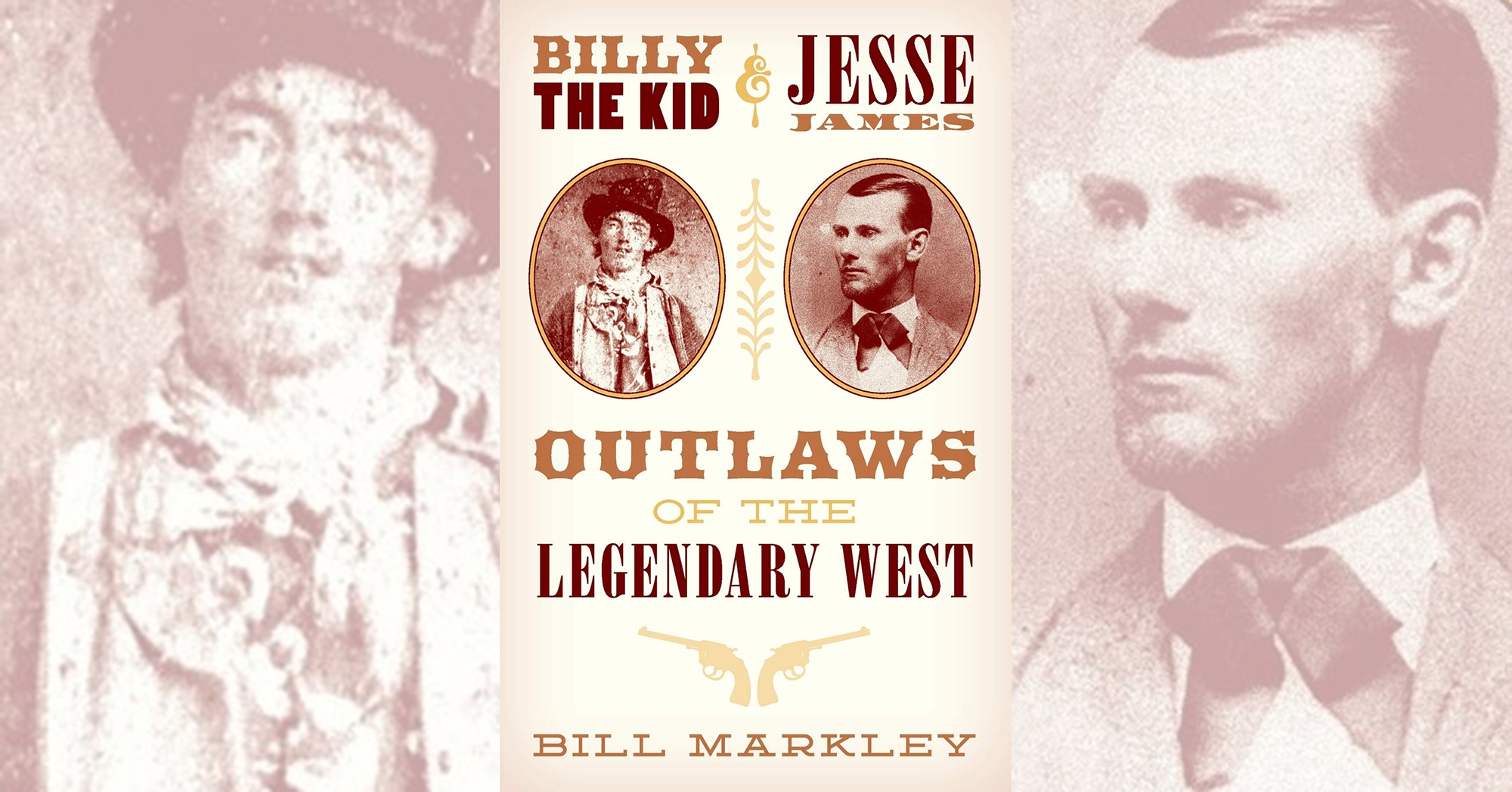Billy the Kid & Jesse James: Outlaws of the Legendary West, by Bill Markley, TwoDot, Helena, Mont., and Guilford, Conn., 2019, $16.95
Plenty has been written about the two most notorious outlaws in Wild West history, but Bill Markley’s second book in the Legendary West series is a worthwhile read even for those who’ve delved into the many earlier biographies of Billy and Jesse—if only for an enjoyable refresher course. Markley’s first offering was Wyatt Earp and Bat Masterson: Lawmen of the Legendary West. That was a natural pairing, as Earp and Masterson worked together, remained friends and said nice things about each other. Pairing up the Kid and the better-known of the James brothers (Frank having long been overshadowed by younger brother Jesse) is different in that the two main subjects largely worked in different parts of the country and at most met once (near Las Vegas, New Mexico Territory, in late July 1879, an alleged meeting Markley addresses in a sidebar). What’s more, Jesse was a dozen years older than Billy, Jesse first became involved in the killing business during the Civil War when Billy was just a kid somewhere (little is certain about his early days), and Jesse was into robbing banks and trains, while the Kid was mostly a rustler. “Comparing the two outlaws’ lives,” Markley writes in his introduction, “is similar to comparing astronomical phenomena. Jesse’s career was like a comet slowly traversing the night skies, while Billy’s career was more like the streak of a brilliant shooting star plummeting to earth.”
Regardless of the difficulties in comparing Billy to Jesse, it’s interesting to see the lives and careers of the two men dealt with in one volume. The task of separating truth from legend for the pair might be easier than it was in the last century (thanks to legwork by assorted researchers), but it still rates as a challenge. Was Billy the Kid, though sometimes misguided, actually a pretty decent sort who waged a personal war against greedy businessmen backed by a corrupt territorial government? Was Jesse James, a die-hard supporter of the Confederacy, really fighting after the Civil War against greedy Yankee bankers and railroad men, and did he really take from the rich to give to the poor? Though Markley addresses such questions, he mostly just lays out the facts and allows readers to decide. “I have tried to write this book with no bias, but everyone has one, even if it is subtle,” he admits.
“I have reviewed the information on Jesse and Billy and tried to present those stories that have the ring of truth,” Markley adds. Helping the author’s cause are his reliance on six excellent books, which he recommends to readers seeking more details on aspects he only touches on here. His big six include, for Billy, The West of Billy the Kid, by Frederick Nolan; Billy the Kid, by Robert M. Utley; and To Hell on a Fast Horse, by Mark Lee Gardner; and for Jesse, Frank and Jesse James, by Ted P. Yeatman; Jesse James, by T.J. Stiles; and Shot All to Hell, by Gardner. Who was the greater of the two outlaws? Well, first off, one must figure out exactly what “greater” means in regard to lawbreakers. Certainly, Jesse’s criminal career was longer and loaded with such dramatic robberies as the failed Northfield raid in Minnesota. But Billy had his share of dramatic moments, especially during the Lincoln County War, which rivals the Earp-Cowboy trouble in Arizona Territory for deadly factionalism. Both recorded great escapes—Billy after shooting Sheriff Pat Garrett’s two deputies in Lincoln, Jesse after the fiasco at Northfield. And both remain better known and better liked than the men who shot them—Garrett and Bob Ford, respectively. Everyone has an opinion of the “greater” question, and Markley gives his own answer, though he saves it for the afterword.
—Editor





